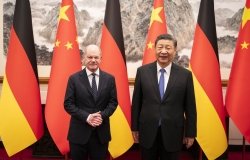#141 The Beginnings of Industrialization in Central America
By Edelberto Torres-Rivas
Abstract
The subject of this paper is the relative importance of political, social, and economic conditions, both internal and external, in the industrialization process in Central America following World War II. The paper points out that the dependence on the world market is such that external conditions determine development, although the forms of development vary from one country to another, according to the internal conditions of each one.
In order to surmount the political crisis which coincided with the end of the Second World War, the local oligarchies were forced to incorporate the middle classes and the bourgeoisie in an attempt to modernize the State and broaden its functions. These social strata had their own deliberate industrialization project which was based on the agrarian sector's expansion, modernization, and diversification. The modernization of the export-producing plantations strengthened local commercial capital, thus allowing its transfer to the industrial sector. However, as long as the rate of profits depended more on the world market than on the development of internal productive forces and salary levels, the internal market was considerably limited, because of the way in which local income was distributed via salaries. By substituting a social broadening of the internal market for a purely geographical one, the Central American Common Market allowed agrarian reform to be postponed.
Related Program

Latin America Program
The Wilson Center’s prestigious Latin America Program provides non-partisan expertise to a broad community of decision makers in the United States and Latin America on critical policy issues facing the Hemisphere. The Program provides insightful and actionable research for policymakers, private sector leaders, journalists, and public intellectuals in the United States and Latin America. To bridge the gap between scholarship and policy action, it fosters new inquiry, sponsors high-level public and private meetings among multiple stakeholders, and explores policy options to improve outcomes for citizens throughout the Americas. Drawing on the Wilson Center’s strength as the nation’s key non-partisan policy forum, the Program serves as a trusted source of analysis and a vital point of contact between the worlds of scholarship and action. Read more










